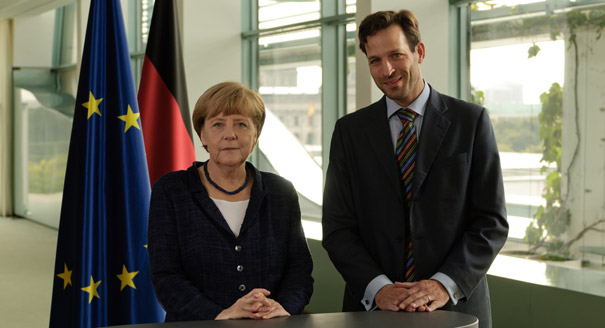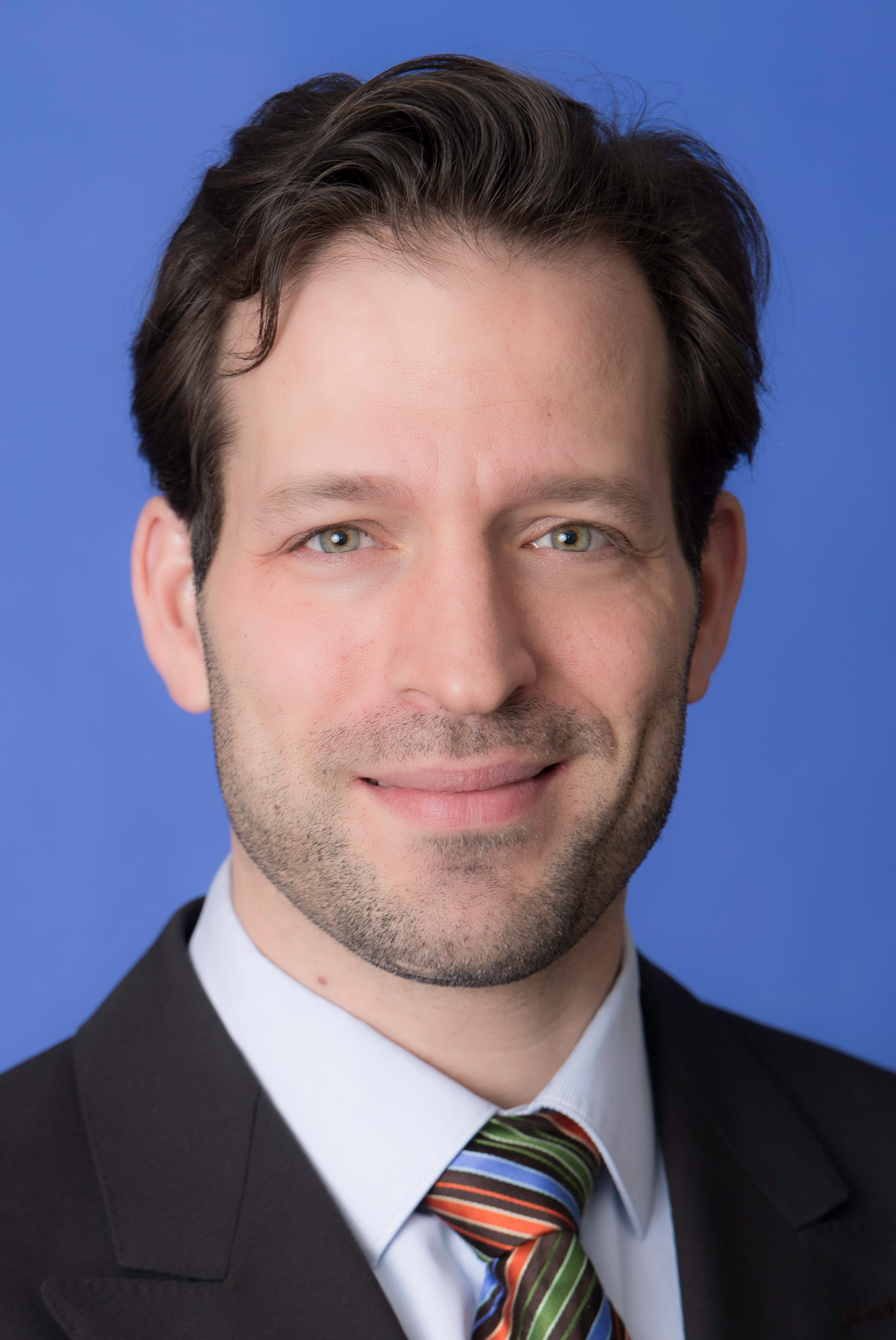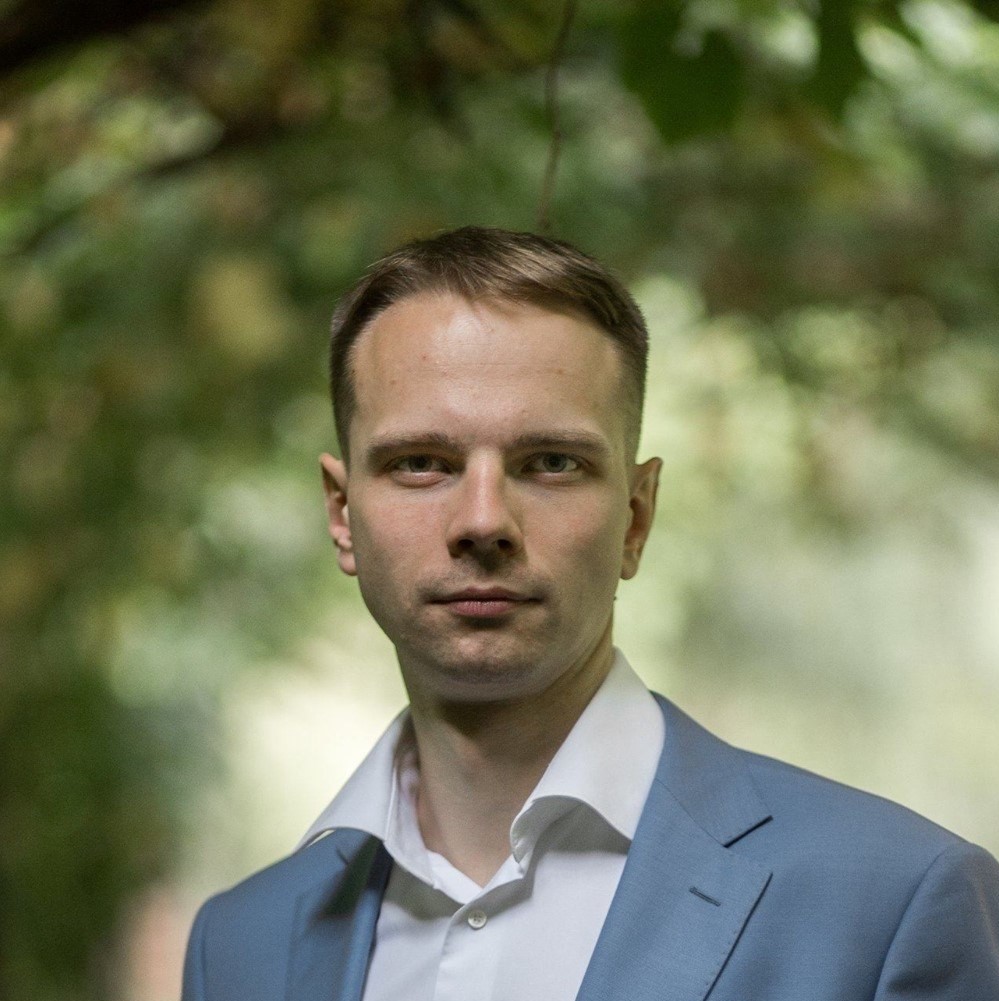Europe isn’t as weak in the new geopolitics of power as many would believe. But to leverage its assets and claim a sphere of influence, Brussels must stop undercutting itself.
Dimitar Bechev
{
"authors": [
"Cornelius Adebahr",
"Angela Merkel"
],
"type": "legacyinthemedia",
"centerAffiliationAll": "dc",
"centers": [
"Carnegie Endowment for International Peace",
"Carnegie Europe"
],
"collections": [],
"englishNewsletterAll": "",
"nonEnglishNewsletterAll": "",
"primaryCenter": "Carnegie Europe",
"programAffiliation": "EP",
"programs": [
"Europe"
],
"projects": [],
"regions": [
"Eastern Europe",
"Western Europe",
"Germany",
"Iran"
],
"topics": [
"Political Reform",
"Economy",
"Foreign Policy"
]
}
Source: Getty
Germany will continue its international commitment, from EU enlargement to the Western Balkans to violent conflicts in the world more broadly.
Source: Video Podcast of the Chancellor
Cornelius Adebahr: Madam Chancellor, most people think of the wars of the past when they hear about the “Balkans”. However, when you’ll meet those countries' heads of government next week you’ll discuss issues like economic development, rule of law and regional cooperation. How do you explain to the citizens that this region is no longer a powder keg, but that it is worthwhile for Germany to get involved there?
Chancellor Merkel: I will perhaps explain a little how this commitment came about, why we decided to organize such a conference with all the countries of the Western Balkans – with the prime ministers, the Economic and Foreign Ministers: This month, we are commemorating the hundredth anniversary of the beginning of World War I. So we were wondering, what can we do except look back? How can we shape the future? And then the federal government had the idea to invite all these states to show that, today, countries in the region are no longer working against each other. True, there are still a number of conflicts, but in essence it is about togetherness. And it is my firm conviction that this has only been possible because all these countries have a “European perspective”, as it is called. That means that they all have the chance to join the European Union. This is a goal they are pursuing together, and on this basis there is more of a common base than was previously possible. So while of course those terrible hostilities are still in our memory, this event also shows we have proceeded, that we are over it – and that’s a good sign.
When we talk about this goal: Since the entry into the EU of Slovenia in 2004, it took nine years until Croatia joined last year. There are six more countries that want to join. If they all accede in the same rhythm, we will both no longer live to see their “European perspective” fulfilled. Even though it is difficult to name a specific date – what is a realistic time horizon for their accession, one that gives people in the region real hope while, at the same time, does not overwhelm the citizens in the EU?
We have promised the “European perspective” to all countries from the region and we stick to this promise. The time between the entrance of Slovenia and Croatia into the EU does not have to be the yardstick for the accession of other countries. Rather it is in the hands and in the power of those countries, when and how they can join. We already have a differentiation between them, so to speak: We have started accession negotiations with Serbia and Montenegro; Albania and Macedonia have candidate status; and Bosnia-Herzegovina and Kosovo are working towards this status. This means that everyone is called upon to create the conditions for accession to the European Union – through structural reforms, reforms of the rule of law, anti-corruption measures, transparent structures. All this is like a race, and the faster the countries proceed, the faster they can also join.
The EU strictly monitors candidate countries in their compliance of EU standards, the rule of law, and administrative work. In hardly does that with its own members. This leads some to accuse it of double standards, and it brings real problems in some old and new Member States. Do you see a role for the EU to also control those who are already in the club?
Well, if you look at the accession procedures that other Member States have gone through, including now also Croatia, then you will see that those criteria have been respected. And for both Bulgaria and Romania, reports on the rule of law and on progress in democratization and the fight against corruption are still being made today. So it is not true that we’re measuring with double standards. However, we have also learned that all that can be solved in the accession process makes membership of course so much easier. And that’s why countries should not see those standards as a barrier, but as an incentive to successfully work for their own citizens. Because the latter are often very frustrated about the lack of rule of law, about courts which may not yet be well working, and about corruption in their own country.
After nearly ten years of war in the former Yugoslavia, political and social reconstruction is still going on. That says something about the perseverance needed for conflict resolution in general. What are the lessons of the experiences of the Western Balkans that Germany and the EU should consider for other regions of the world?
Yes, we see that we indeed need stamina for this. We still have troops in Kosovo. We have a police mission of the European Union there too. One cannot leave those countries alone too early. Even when there is progress, it is sometimes very slow. When I think of Bosnia and Herzegovina, then we have to make another push for a political process after the elections there taking place in the autumn. There is still much to do. And the second point is that it is important to integrate the region – here also others can still learn something. We are inviting the heads and members of government also to improve the cooperation among them. People in those countries want transport infrastructure, they want to travel easily from one country to the other. This in turn strengthens the commonality of these previously warring people and nations. This works only by encounters; change through rapprochement – that’s something we experienced during the Cold War in Europe. And that’s something we can transfer to all areas of the world.
In recent months, a debate has begun in Germany about our country’s international commitment. With this Western Balkans conference, you have proven that the Federal Republic fully supports the accession process; in Ukraine, the government is strongly engaged, and you yourself are now going to Kyiv. One might think that Germany is already doing enough. Why should we still do more?
The question of what we need to do always depends on the conflicts in the world. And we’re currently witnessing a number of conflicts erupt in our immediate neighborhood – see in Iraq, the Middle East, or Syria. This is, by the way, basically also a rebellion against orders that are in part very closely related to World War I. And we need to get involved also in terms of our own security. It is therefore not about meddling into other countries’ affairs, but we must ask ourselves, what is in Germany’s interest? Similarly, we must, of course, also ask: what is a humanitarian challenge of the first order? When Christians and Yezidis are expelled, then we are of course required to act based on our Basic Law. That the dignity of man is inviolable holds true not only for Germans but applies worldwide. I believe that since the end of the Cold War and since the German reunification, we already have completed a remarkable way. If you think of the early 90s when the question was whether we could engage with a surveillance ship in the Adriatic Sea in the context of the Western Balkans? Then we have troops in Afghanistan, still today, for our own safety in the fight against terrorism. Unfortunately, the threat of terrorism is still not banned, and therefore we will continue our commitment.
This interview was originally produced by the Federal Press Office.

Former Nonresident Fellow, Carnegie Europe
Cornelius Adebahr was a nonresident fellow at Carnegie Europe. His research focuses on foreign and security policy, in particular regarding Iran and the Persian Gulf, on European and transatlantic affairs, and on citizens’ engagement.
Angela Merkel
Carnegie does not take institutional positions on public policy issues; the views represented herein are those of the author(s) and do not necessarily reflect the views of Carnegie, its staff, or its trustees.
Europe isn’t as weak in the new geopolitics of power as many would believe. But to leverage its assets and claim a sphere of influence, Brussels must stop undercutting itself.

Dimitar Bechev
The interventions in Iran and Venezuela are in keeping with Trump’s strategy of containing China, but also strengthen Russia’s position.

Mikhail Korostikov
Tehran’s attacks are reshaping the security situation in the Middle East—and forcing the region’s clock to tick backward once again.

Amr Hamzawy
Only collective security can protect fragile economic models.

Andrew Leber
In a volatile Middle East, the Omani port of Duqm offers stability, neutrality, and opportunity. Could this hidden port become the ultimate safe harbor for global trade?
Giorgio Cafiero, Samuel Ramani